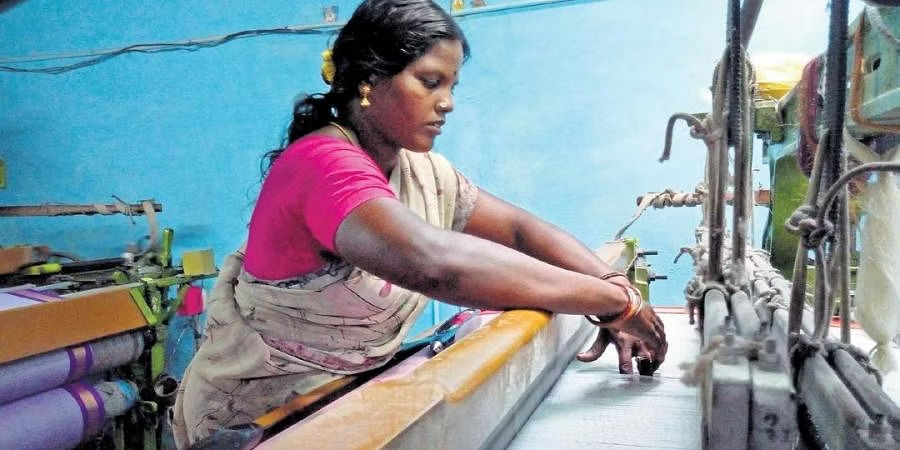Boost for textile and handloom sectors in TN, but weavers find it hard to make ends meet
02 May, 2023

When the DMK assumed office, it created a separate department for handloom and textiles, with an aim to increasing growth in the textile sector and make it globally competitive.
When the DMK assumed office, it created a separate department for handloom and textiles, with an aim to increasing growth in the textile sector and make it globally competitive. Though the department has been taking several steps to promote the sector, handloom weavers in cooperative societies like SV Shankar from Kancheepuram are still battling with low wages.
“Wage difference between co-op weavers and private mill weavers is around Rs 1,500 for a saree. This should be changed. Also, the government should provide social security benefits to weavers and urge the Centre to exempt handlooms from GST,” says Shankar.
Weavers like him want the state government to promote artisanal work to prevent workers from leaving the profession. Over the last two years, the department has been focussed on attracting small players to set up units in the mini textile park, while the mega textile park by the union government benefits big manufacturers. Though it was announced by the previous government, there were no takers for the mini textile project. So, the department rejigged the incentives in line with the industry’s demand and subsequently received the expression of interest for 100 units.
TNIE has learnt that the demand for mini textile parks is very high in Karur, Salem and Erode and a detailed project report is being prepared for as many as seven parks. The work for the 119-acre Salem textile park, jointly executed by Centre and the state, has also progressed to the stage of land acquisition.
According to sources, the state government is also planning to introduce a revised textile policy in two months. It will have a special focus on building capabilities in technical textiles and R&D, and sustainable manufacturing.
The focus on environment-conscious manufacturing comes at a time when Tamil Nadu’s key market, Europe, is moving towards green fashion. The policy will also give a big push to manufacturing textile fibres from waste products, including PET bottles, it is learnt.
Also, the state government has constituted a scientific committee with technical experts to eliminate hazardous waste salt accumulated in common effluent treatment plants. It will finalise a newer technology to eliminate salt and prescribe standard operating procedures for establishing treatment facilities.
Meanwhile, textile manufacturers have urged the government to set up a knitwear board, a statutory body to facilitate growth of the sector and act as a single point of contact.
The department has turned around the finances of Co-optex and 45 showrooms across the country have been modernised. TP Rajesh, commissioner of handlooms and managing director of Co-optex, told TNIE, “When we started, we faced stagnation of goods and legacy losses. Now, we are focusing on making handloom products premium, and bringing out trendy designs and fashionable colour patterns in partnership with National Institute of Design and National Institute of Fashion Technology - Chennai and Bengaluru. The turnover of cooperative societies has improved by `200 crore since the DMK government took over.”
Useful Links:
Source: www.newindianexpress.com
